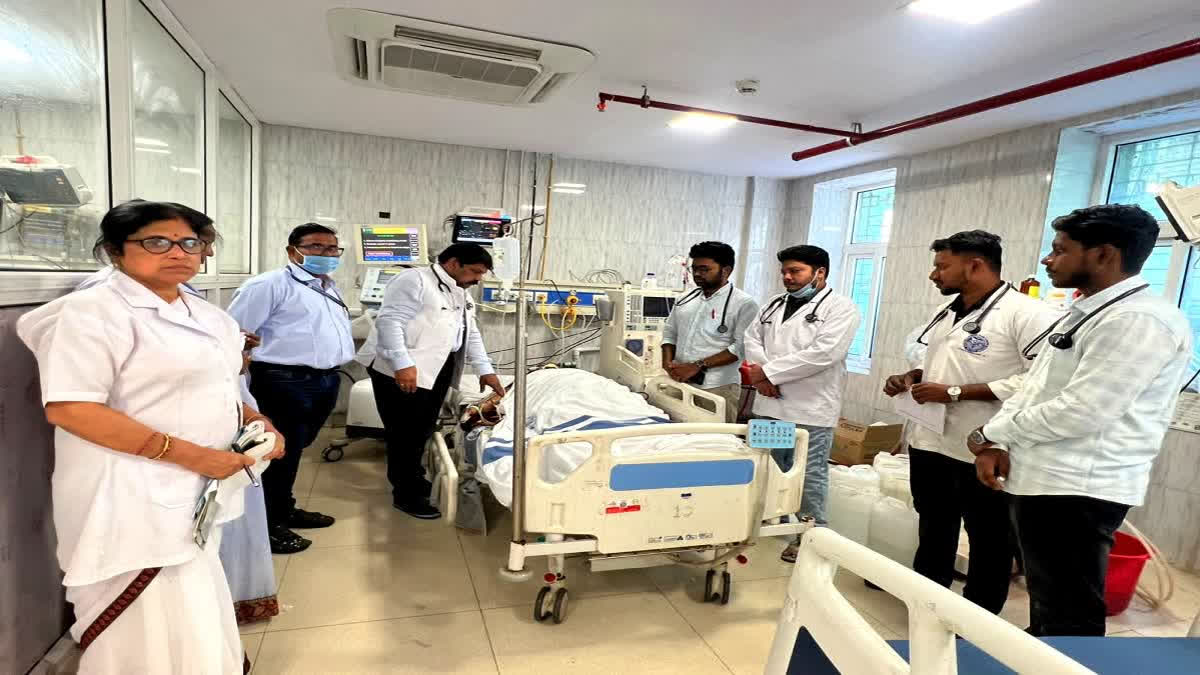Cuttack: The death toll in Kandhamal’s tragic mango kernel poisoning incident rose to three as Jeeta Majhi succumbed to multi-organ failure at SCB Medical College and Hospital in Cuttack on Monday. Jeeta, a resident of Mandipanka village in Daringbadi block, had been undergoing treatment in the ICU after consuming contaminated mango kernel gruel, a traditional tribal dish.
Jeeta Majhi, admitted in critical condition, suffered complete kidney failure along with severe damage to her heart, liver, and brain. Despite undergoing ten sessions of dialysis and continuous ventilator support, she succumbed to the toxic effects of the mango kernel gruel. Health Minister Mukesh Mahaling had visited the hospital earlier to review her condition and that of other affected villagers.
This tragedy has raised questions about food security and poverty in the tribal belts of Odisha, where mango kernels, often a last-resort food during scarcity, are still consumed despite the risks of toxicity if improperly processed.
The poisoning incident began on November 1 in Mandipanka village when eight people fell ill after eating the gruel. Two women—one succumbing en route to MKCG Medical College, Berhampur, and another at Brahmanigaon Health Center—died shortly after. The six others remain under treatment, with their conditions reportedly critical.
Congress Condemns
The Odisha Congress has condemned the loss of tribal lives due to starvation, particularly the tragic deaths attributed to eating mango kernel in Mandipanka village, Kandhamal. Senior Congress leader Srikant Jena criticized the state government’s indifference, accusing the administration of adopting a cold-hearted attitude toward the tribals. He also condemned the departmental minister’s insensitive remarks on the incident, which he said deeply hurt the sentiments of the people.
A Congress delegation, led by Srikant Jena, visited the affected village to assess the ground realities. The delegation highlighted the acute food scarcity in the region, where people are reportedly forced to rely on mango takua due to lack of adequate supplies. Jena stated, “This isn’t just about Mandipanka; it’s a reflection of widespread food insecurity in the area. The state government’s inaction and delayed response have cost precious lives. If proactive measures had been taken earlier, this tragedy could have been averted.”
"If the government remains silent, we will take the matter to the public,” Jena said. He demanded a comprehensive plan to address food insecurity, including advanced-level processing of mango takua, and accused the state government of attempting to cover up the issue with superficial investigations.
The Congress has also sought the intervention of the Governor. The Governor assured the delegation that he would visit Mandipanka after Chhath Puja. “Life holds no value in this state,” Jena lamented. “This tragedy is a glaring example of neglect toward the most vulnerable sections of society.”
Following public outrage, the Chief Minister ordered an investigation by the Revenue Divisional Commissioner (RDC) and convened an urgent meeting with officials from the Supplies Department. The state government has announced the provision of 15 kg of rice per family for the next three months in the affected region. The RDC has already visited Mandipanka to assess the situation, but critics argue that these measures are too little, too late.
Political Fallout
